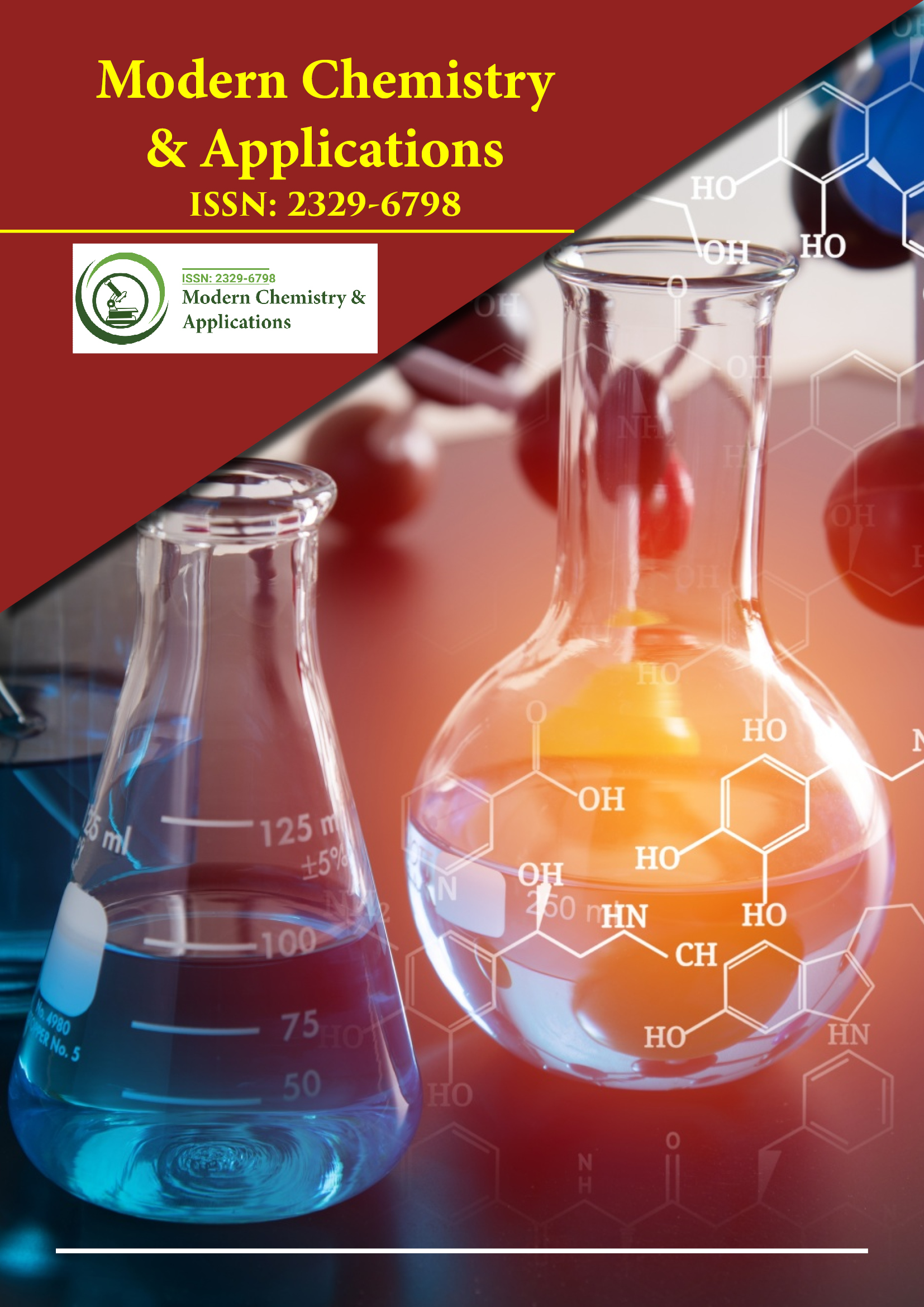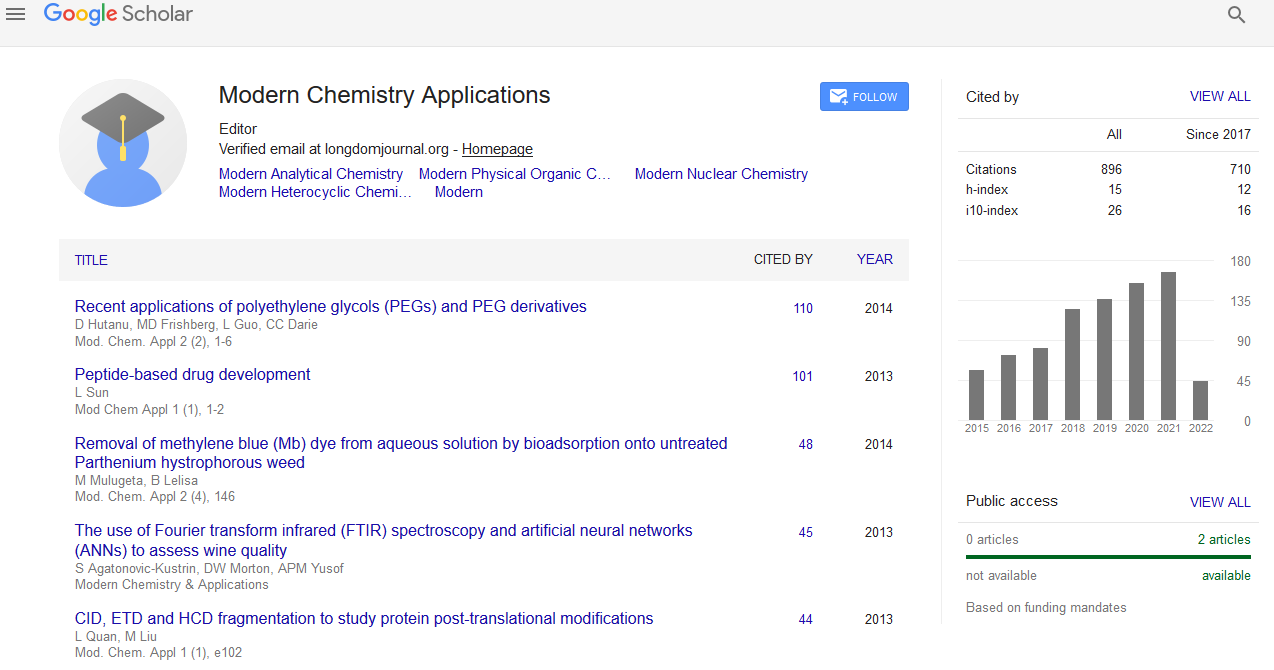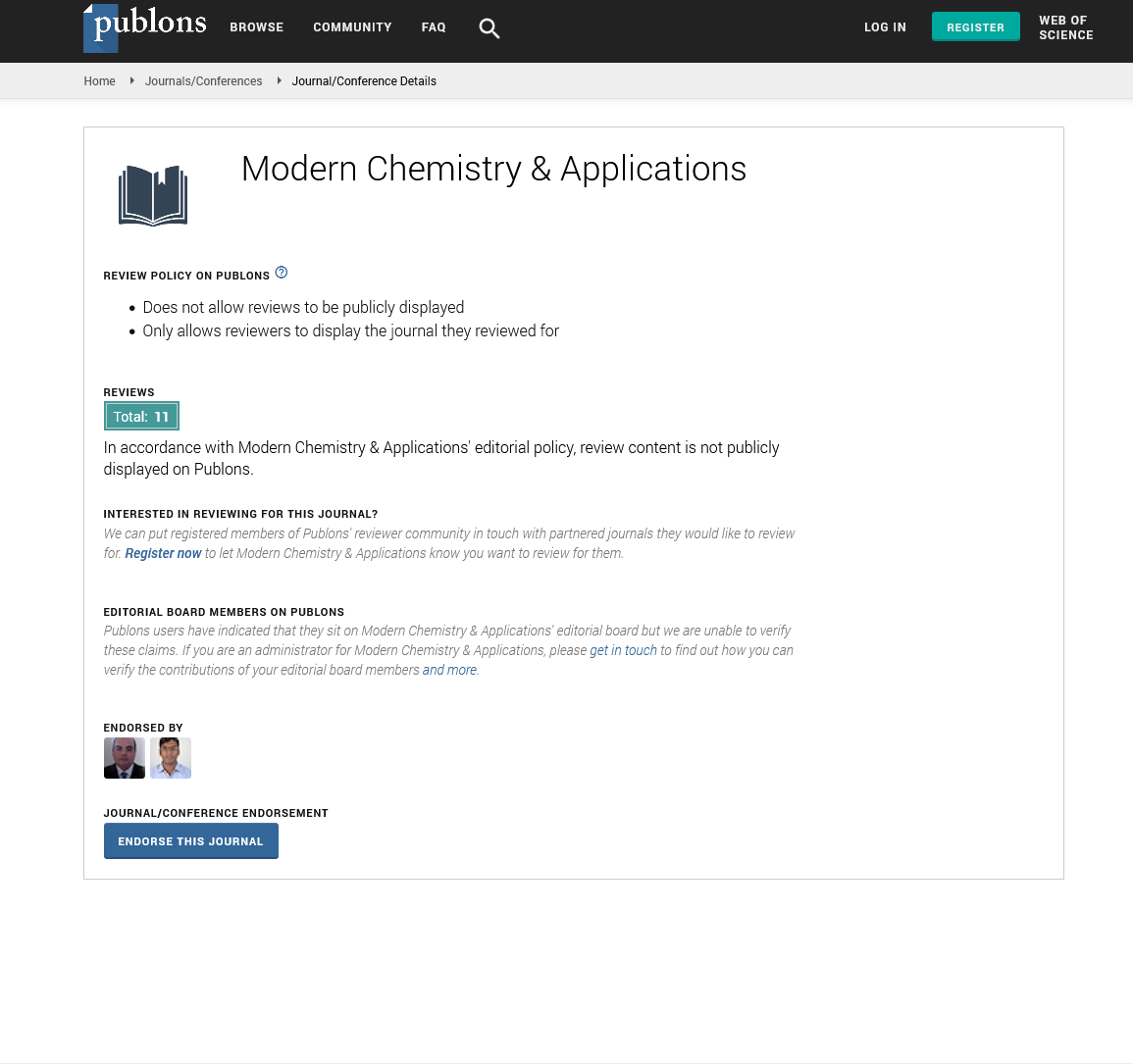Indexed In
- Open J Gate
- JournalTOCs
- RefSeek
- Hamdard University
- EBSCO A-Z
- OCLC- WorldCat
- Scholarsteer
- Publons
- Geneva Foundation for Medical Education and Research
- Google Scholar
Useful Links
Share This Page
Journal Flyer

Open Access Journals
- Agri and Aquaculture
- Biochemistry
- Bioinformatics & Systems Biology
- Business & Management
- Chemistry
- Clinical Sciences
- Engineering
- Food & Nutrition
- General Science
- Genetics & Molecular Biology
- Immunology & Microbiology
- Medical Sciences
- Neuroscience & Psychology
- Nursing & Health Care
- Pharmaceutical Sciences
Kamal M Dawood

Kamal M Dawood
Professor, Department of Chemistry
Cairo University, Egypt
Biography
Kamal M. Dawood graduated from Cairo University, Egypt in 1987. He received his PhD in 1995 in the applications of hydrazonoyl halides in heterocyclic chemistry. In 1997 he was awarded the UNESCO Fellowship at Tokyo Institute of Technology (TIT) and collaborated with Prof. T. Fuchigami in the field of ‘Electrochemical Partial Fluorination of Heterocyclic Compounds’. In 1999, he was awarded the JSPS (Japan Society for Promotion of Science) Fellowship for two years and worked again with Prof. Fuchigami at TIT in the same field. He was awarded the Alexander von Humboldt (AvH) Fellowship at Hanover University in 2004-2005 with Prof. A. Kirschning in the field of polymer supported palladium catalyzed cross coupling reactions and in 2007 and 2008 with Prof. Peter Metz at TU-Dresden, Germany, in the field of total synthesis of natural products. In 2002 he promoted to Associate Professor and in May 2007 he was appointed as Professor of Organic chemistry, Faculty of Science, Cairo University. In 2002 he received the Cairo University Award in Chemistry and in 2007 he received the State-Award in Chemistry. In 2012 he received the Cairo University Award for Academic Excellence. He is a member of the international Editorial Board of ISRN Organic Chemistry, part of the International Scholarly Research Network (ISRN), open access journals. He published 85 scientific papers and reviews in distinguished international journals. There are about 1000 citations of his work from 1993 until 2012 (h-index 18).
Research Interest
1- Synthesis and biological evaluation of several heterocyclic ring systems with one, two, three or four heteroatoms utilizing a number of synthetic routes e.g. regioselective 1,3-dipolar cycloaddition.
2- Regio- and stereoselective synthesis of a variety of spiro- and bis-heterocycles.
3- Regio- and stereoselective synthesis of a variety of biologically active fluorine containing heterocycles via electrochemical anodic methodology.
4- Solid-phase assisted metal catalyzed organic synthesis under microwave irradiation.
5- Partial synthesis of natural products


